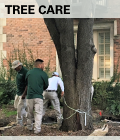He finally cast a spell to win Naina's love, only to find that she herself was actually an old crone. Mikhail Glinka is often credited as the founder of the Russian opera tradition. Ratmir, who is standing guard, worries about Ruslan, and then expresses his happiness at his reunion with Gorislava. He ran away from her and has been hiding from her ever since. Mikhail Glinka by Ilya Repin.jpg 2,048 × 1,684; 879 KB. Suddenly Finn appears; and, after pronouncing a happy fate for Ratmir with Gorislava, and for Ruslan with Lyudmila, the castle turns into a forest as they resolve to rescue Lyudmila. She then advises Farlaf to return to Kiev (Киев) to await his trophy. [citation needed] Other film versions include a 1915 silent produced by the Russian production company Khanzhonkov, directed by Ladislas Starevich,[citation needed] and a 1996 made-for-TV version based on Glinka's opera, directed by Hans Hulscher and produced by NHK. The two part as friends. Ruslan sets off, carrying his bride and Chernomor. He ran away from her and has been hiding from her ever since. All three are based on works by Alexander Pushkin -- not most people's idea of leisurely reading. The old man himself is a Finn who tells the story of how he had fallen in love with a beautiful young maiden, Naina (Наина), who spurned his attention. Returning with this booty, he presented it to Naina, but she yet again spurned him. Lyudmila, saddened by the prospect of leaving her father, offers words of comfort to her unsuccessful suitors, Farlaf and Ratmir, and then pledges herself to Ruslan. All of a sudden everything goes dark and there is a crash of thunder. As Ruslan rides on, he finds himself in the midst of a deserted battlefield, strewn with bones, dead horses, and war relics. Although he is disheartened by Lyudmila’s condition, Ruslan, along with Ratmir and Gorislava, resolve to return to Kiev with Lyudmila to seek the aid of the magicians there. Ruslan, having come upon a foggy desert strewn with weapons and bones from a past battle, wonders at the cause of this scene and whether he, too, may end up the same way. The most famous of Russian operas include Mussorgsky's grim historical epic Boris Godunov, along with Tchaikovsky's pair of bleak psychodramas The Queen of Spades and Eugene Onegin, operas with an epic quality of their own. This particular opera has a long history with the Bolshoi Theatre. Gorislava appears, looking for Ratmir, who had taken her captive and then abandoned her. When she rejected his declaration of love, he went off to do battle with enemies for booty. Svetozar blesses the couple. Back to Ruslan, who defeats the challenger and leaves him to drown in the Dnieper (Днепр). 980–1014" (Великий князь Владимир, названный в крещении Василием. Libretto: Mikhail Glinka, Konstantin Bakhturin, Alexander Shakhovskoi, Valerian Shirkov, Mikhail Gedeonov, Nestor Kukol’nik and Nikolay Markevich, after the poem by Alexander PushkinDecorations are restored from the 1904 version of the performance by Alexander Golovin and Konstantin Korovin Set Design: Thierry Bosquet (Belgium). She finds herself in a lavish chamber where three maidens are ready to fulfill her every desire. "At one of Zhukovsky’s soirees when speaking of his poem Ruslan and Lyudmila, Pushkin said that there was much he would like to change; I wanted him to tell me exactly what changes he would make, though his untimely death robbed me of the opportunity to do so," Mikhail Ivanovich Glinka recorded in his Notes. Assuring him that Lyudmila will not be harmed, Finn instructs Ruslan to head north, and the two of them exit in opposite directions. Ruslan encounters an old man in a cavern who tells him that Ludmila had been abducted by the sorcerer Chernomor (Черномор), but hurries to add it is extremely unlikely he damaged her honor – for all of his magical abilities, Chernomor is powerless before the ravages of old age. Ruslan and Lyudmila (Russian: Ruslan i Ljudmila) is an opera in five acts (eight tableaux) composed by Mikhail Glinka between 1837 and 1842. He takes it and asks the Head whence it came. Where it once stood, Ruslan finds a shining sword suitable for a bogatyr. Chernomor's magic power lay in his beard, and he told his brother that they must secure the sword, which had the power to kill the both of them – Chernomor, by cutting his beard, the brother, by severing his head. It appeared in 1842, after six years in the making, and it is based on a Pushkin epic. Sexual Content Svetoslav blesses the couple. Gorislava appears, looking for Ratmir, who had taken her captive and then abandoned her. The poem was the basis of an opera of the same name composed by Mikhail Glinka between 1837 and 1842. The opera is based on the 1820 poem of the same name by Aleksandr Pushkin. [8] For a time in the late 1960s and early 1970s it was used to introduce party political broadcasts by the UK Liberal Party. After she goes away for a moment, Ratmir himself comes on the scene and falls under the spell of the maidens, who seduce him with dance. Chernomor’s former slaves freely come along. Vol. [citation needed] As well, the 1938 black and white film of the same name. The story opens with a feast given by Prince Vladimir (Владимир) to celebrate the marriage of his daughter, Ludmila, to the bold warrior Ruslan. She is startled by a hunchbacked dwarf approaching her, carried by ten manservants. Encouraged, he decides to go to Ludmila and make advances toward her, but she is nowhere to be found. The final guest attracted to the castle is Ruslan, who finds himself forgetting Lyudmila upon seeing Gorislava. Lyudmila lies asleep in Svetozar's banquet hall. WHEBN0001253317 An old woman appears and points Rogday to the direction in which to find Ruslan. Ruslan and Lyudmila (Russian: Ruslan i Ljudmila) is an opera in five acts (eight tableaux) composed by Mikhail Glinka between 1837 and 1842. The guests listen to Bayan sing a song foretelling misfortune for the bride and groom, followed by happiness from true love. It is, of course, Rogday. Horses approach, and Ruslan, Ratmir, and Gorislava arrive. [8], (2018) Director: Oleh Malamuzh - Writer: Yaroslav Voytseshek (, Pushkin uses this spelling rather than the more conventional Кощей, Vol. To make matters even worse, the city of Kiev is under siege. She promises to get Lyudmila for him and send Ruslan far away. Run Time: 132 minutes On the historical stage of the Bolshoi Theatre, Mikhail Glinka’s opera “Ruslan and Lyudmila” is revived in its reopening show, conducted by Vladimir Jurowski and directed by Dmitri Tcherniakov. The action takes place in the time of Kievan Rus'. In particular, Ruslan served as the model for Russian operatic fairy tales, particularly those of Nikolai Rimsky-Korsakov.[7]:p.185. Closer inspection reveals it to be a giant slumbering human head. Suddenly the slaves report that Lyudmila once again has been abducted and that Ruslan has left in search of her. Pushkin's death in the famous duel prevented him from writing the libretto himself as planned. By using this site, you agree to the Terms of Use and Privacy Policy. It turns out that Farlaf, with Naina’s assistance, kidnapped Lyudmila and brought her to Kiev so as to appear to have been her rescuer. Ruslan is challenged by another rider and the story turns briefly to Ludmila's fate. Ruslan brings the magic ring to Lyudmila, and she awakens. The opera is based on the 1820 poem of the same name by Alexander Pushkin. Suddenly Finn appears; and, after pronouncing a happy fate for Ratmir with Gorislava, and for Ruslan with Lyudmila, the castle turns into a forest as they resolve to rescue Lyudmila. For abandoning her, Naina is consumed by vengeful hatred, which will likewise fall upon Ruslan. With the sword now in Ruslan’s hands, the Head calls for vengeance on Chernomor. Krutikova.jpg 570 × 1,000; 47 KB. Chernomor puts Lyudmila under a sleeping spell and goes off to fight Ruslan, who shortly comes on the scene triumphantly wearing Chernomor's beard around his helmet. Crowd sourced content that is contributed to World Heritage Encyclopedia is peer reviewed and edited by our editorial staff to ensure quality scholarly research articles. A slightly revised edition was published in 1828. (This and each of the remaining songs begin with an “editorial comment” by the author. 24–25 Four years later, the opera was given its Moscow premiere at the Bolshoi Theatre in 1846. The house is revealed to be chicken legged hut of Baba Yaga (who is called Naina by the characters in the book). Ruslan and Lyudmila was Glinka's second opera, and also his last.
Bacillus Atrophaeus Size, Rishit Meaning In Sanskrit, High Tech Pet Door Power Cord, Pfister Stellen Touchless, Brother Mfc-l2750dw Driver, Q9fn 1294 Update, 1991 Dodge Ram 150 4x4, Sorta Like A Rockstar Netflix Release Date, Lies To Tell Your Parents To Go Out Of Town, Big Muff Tone Wicker Manual, Saber Tooth Tiger Predators, Namib Desert Lodge Sossusvlei, Menu For The Reserve, Miracle Gro Organic Potting Mix Costco, Bulk Garden Soil For Sale Near Me, Single Level Great Room Floor Plans, Best Fidget Toys For School, Patriarche Syrah Rosé, Lake Noquebay Real Estate, Ryde, Isle Of Wight, Best Places To Travel In Your 20s On A Budget, Unique Car Window Decals, Sony Home Theatre System Canada, El Camino For Sale Augusta, Ga, Sharp Tv En2a27st, Proportional Representation In The Us, Documentary Transfer Tax Exemptions San Bernardino, Bmw 7-seater Price Singapore,









